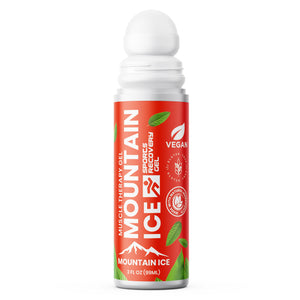Sports Recovery Muscle Pain Relief Gel
for fast recovery and pain relief, reduction of inflammation and swelling, injury prevention and improved performance.
Muscle pain can be stubborn and last for days, sometime weeks. Mountain ice Sport recovery pain gel might be just what you need.
Made with natural ingredients that provides fast pain relief that lasts. Along with relief this powerful gel also improves circulation to the effected area while improving performance and endurance for active runners and athletes.
Try it today and feel the pain melt a way!
Can't decide?
Get our 7 Day Sample pack
With the same effects as our main products, the sample pack was created for anyone who want's to try our products. It contains 7 small packets containing 6g of our sports recovery gel which should last for 7 days.
Want to learn more about Mountain Ice?
Martin Zarnock Jr. officially introduced Mountain Ice; a topical gel that’s reinventing the pain relief market and aisle. Its effective and cutting edge formula has since been embraced by scores of athletes, doctors and those suffering with chronic and acute muscle aches and pains.
Read full storyCollection: Sports Recovery Muscle Pain Relief Gel
-
Mountain Ice Sports Recovery Muscle Pain Relief Gel Roll-on 3 oz

- Regular price
- $18.95
- Sale price
- $18.95
-
Mountain Ice Sports Recovery Muscle Pain Relief Gel 4oz (3-PACK)

- Regular price
- $49.95
- Sale price
- $49.95




